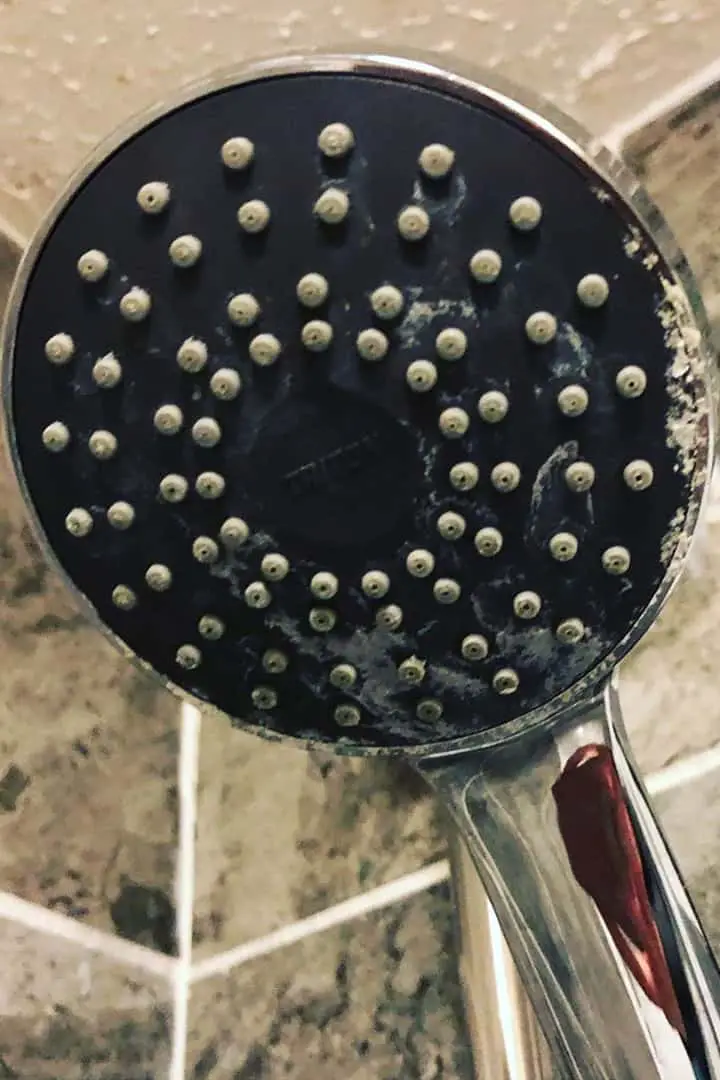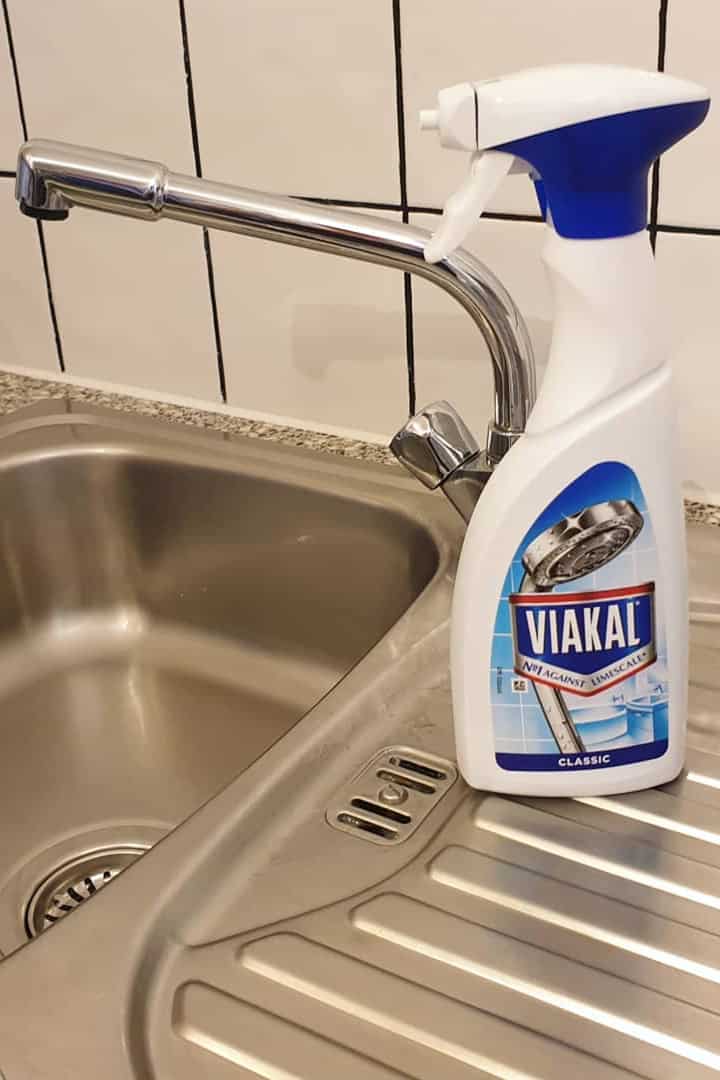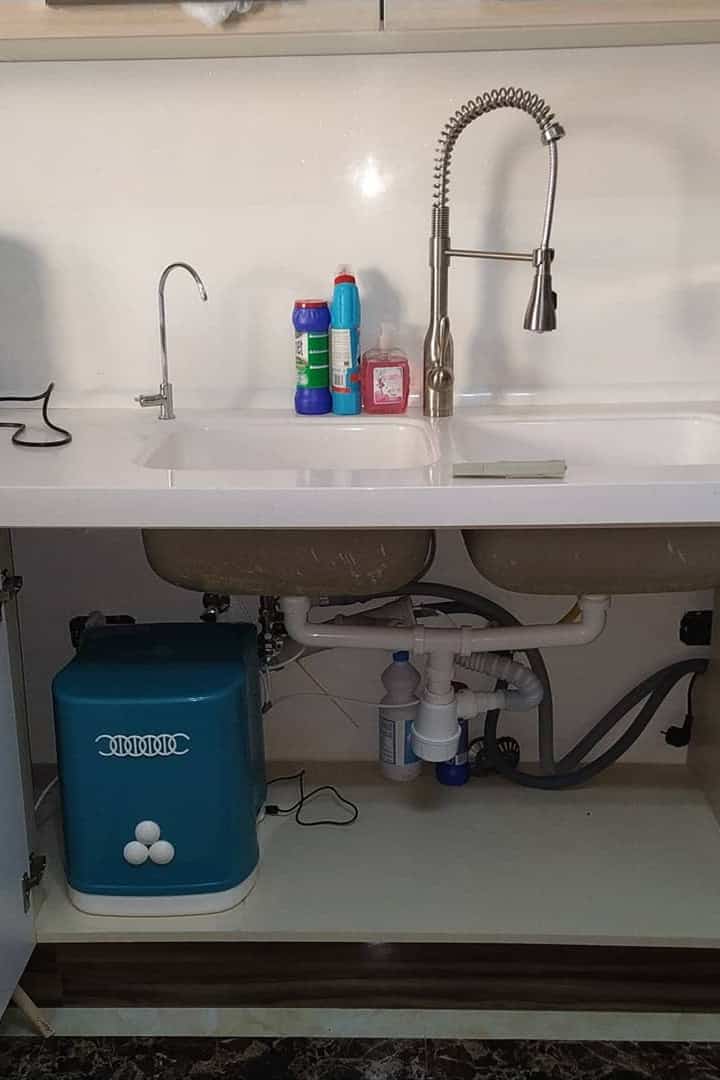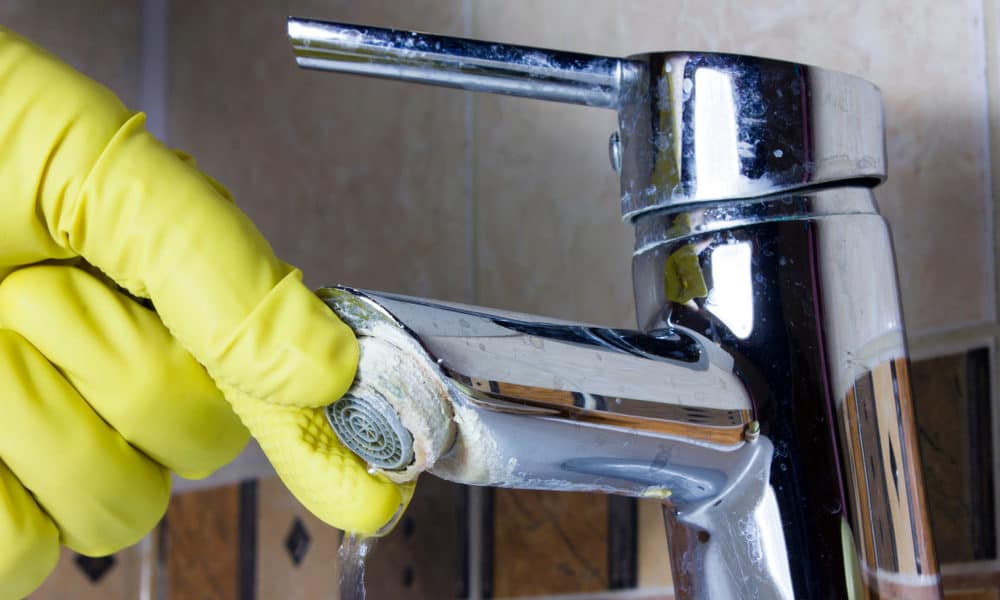If you live in an area with high sediment, you are likely familiar with the struggles of hard water. What does hard water refer to though? Water is deemed ‘hard’ when it contains high amounts of minerals dissolved in it.
After the water has evaporated, it leaves marks and stains on your appliances, cutlery, and other areas of your home. It can also leave stains on your laundry.
I have been having this issue in the home I have just moved into. The taps and cutlery especially are areas where it builds up for me.
There are white marks on a lot of the stainless steel around my kitchen. I have written this post to share with you some of the solutions I have found for hard water.
What’s So Bad About Hard Water?
Many people do not understand why there is a need to remove hard water. It is perfectly safe to drink and fine for your body. You do not need to remove it from your water for safety reasons.
While it may be perfectly safe to consume, it does have multiple negative effects on your home. After reading about these, I am sure you will be hoping to find some hard water solutions too.
One very irritating thing about hard water is that it leaves a white residue on your kitchen items. Ever noticed a build-up of a white substance on your tap or cutlery? This comes from the minerals in hard water.
It can be hard to remove and results in a lot of double washing of your dishes. It is often found on dishes when you take them out of the dishwasher after cleaning. That is because of course, the water roaming around your dishwasher is tap water containing all these minerals.
An effect of this residue is that while it may be able to be wiped away on your dishes, it builds up in your plumbing and appliances. It contributes towards rusting and scale build-up.
It will also reduce the length of time your plumbing lasts for. This can be awfully expensive in the long run. That is why it is best to look for a solution to reduce the hardness of your water.

Hard Water Solutions
There are a few ways we can solve the problem of hard water. One of the possible hard water solutions is to learn how to remove these mineral deposits that build-up on our faucets and dishes.
The other way is to select a method for softening your water. This will protect your pipes as well as giving you less residue on your kitchen items. I will cover hard water solutions for both here.
Solutions to Remove the Effects of Hard Water
1. Vinegar
If you find that you have a large build-up of calcium on your stainless steel faucet, vinegar can aid you in removing this. The majority of minerals in your water are likely to be calcium. Calcium is highly reactive to vinegar, so that’s why vinegar can help you get it off.
Heat your vinegar until it is hot but not boiling. Them, place in anything with calcium residue on it. Let it soak for around an hour in the vinegar.
If you have other appliances that you cannot pick up to put in a bowl, such as faucets, you can use vinegar to wipe them down.
2. RinseAid
Hard water residue that ends up on your dishes, and glasses, in particular, can be a challenge to remove. It happens because hard water makes it tough for soap molecules to dissolve, leaving them on your dishes in your kitchen.
However, using a rinse-aid product can help you tremendously with this. Try using one such as Lemi-Shine. This product is effective even if you are targeting mineral build-up that has occurred over a large period of time. Products such as this one can make it easier to rinse your dish soap off your dishes.
3. Shampoo
One of the issues with hard water is that it makes it tough to effectively rinse the shampoo out of your hair. It can leave you with shampoo suds still on your hair even after thorough rinsing.
You will find that your hair feels greasy even though you have just washed it. That is because it affects how soap molecules dissolve, as previously mentioned.
How can you combat this so that you leave the shower with fresh, clean hair? I suggest that you try using hard water shampoo. These shampoos are specifically formulated to be used with hard water. They usually contain chelating which binds to the agents in hard water to become soluble.
Solutions to Soften Hard Water

4. Ion-Exchange
Now we move on to hard water solutions which focus on softening water. Ion exchange is a form of water filtration system which softens the water in your home. It extracts the minerals which leave residue on your dishes, pipes, and tapware.
The process undertaken by an ion exchange system is complex. It exchanges the calcium and magnesium minerals found in hard water for sodium minerals. Sodium is known as a soft mineral that does not build-up deposits on your home.
Water flows through ion exchange resin beads containing the sodium. After the water has come out of this process, it is now softened. You will no longer have to deal with scrubbing away mineral deposits in your home.
Check out more about water softening by watching this video.

5. Template Assisted Crystallization (TAC) Or Nucleation Assisted Crystallization (NAC)
Rather than being officially water softeners, TAC or NAC are better known as water conditioners. The difference is that rather than removing minerals from the water, they change the way they behave.
With a water conditioner, the minerals will no longer stick to your surfaces to create deposits or build-ups. You can also avoid those dreaded laundry stains that come from hard water. It can make your clothes feel softer and appear brighter.
In a TAC system, water will flow through it. While it does this, the minerals in it are changing form into crystals. These crystals will not stick to your surfaces. You will still have hard water but much less of the negative effects.
The benefit of using these systems is that you do not need to use a large amount of salt or sodium in your water. This makes them more environmentally friendly.
6. Showerhead Water Filter
If you are specifically concerned about how hard water is affecting you in the shower, a showerhead water filter is a great option. Hard minerals can not only cause your shampoo to stay in your hair and make it feel greasy, but it has other effects as well.
One of these is dry skin and eczema flare-ups. By removing the minerals from your shower water, you can experience clean hair and softer skin.
Another benefit is that many showerheads get clogged with a build-up of limescale. This lessens water pressure and is extremely hard to clean out of the tiny holes.
Often, you end up simply purchasing a brand-new showerhead instead. By using a showerhead water filter, you will not have this limescale build-up. This will make your showerhead last longer.
You will find all sorts of showerhead water filters available. Some contain carbon filters, while many use a mixed-media system containing multiple filters.
7. Reverse Osmosis System

While reverse osmosis systems are not well-known as water softeners, they are incredibly effective at softening water. They are more often marketed as under sink water filters, and yes, they provide potable water. They do work for filtering contaminants out of the water to make it drinkable
They also remove magnesium and calcium ions from water. This makes them one of the best all-rounder filters available as they not only filter your water but soften it too.
It does not use salt, chemicals, or other substances that you may not want in your water. The filters are durable and last a long time, making it an excellent cost-effective option.
There are two main drawbacks, however. The first is that the filter needs to be regularly cleaned to be effective. The other is that it will increase your water usage. This is not optimal for the environmentally-conscious consumer.
There are many ways that you can attend to the deposits left by hard water in your home. However, do you really want to spend the rest of your life cleaning off stains that could have been avoided? For me, I think the best option is to find a good water softener solution.
This gives you many more benefits. No longer have limescale and mineral build-ups in your kitchen. Shower and leave with soft skin and squeaky-clean hair. Your clothes will come out of the wash looking brighter and feeling softer.
Summary
Deciding which water softener to use is a tricky task. Some are more environmentally friendly, while others are less so. Of course, they vary greatly in cost as well.
Make sure that you thoroughly research each available option before making your decision. That research could save you a lot of money in the long run.
